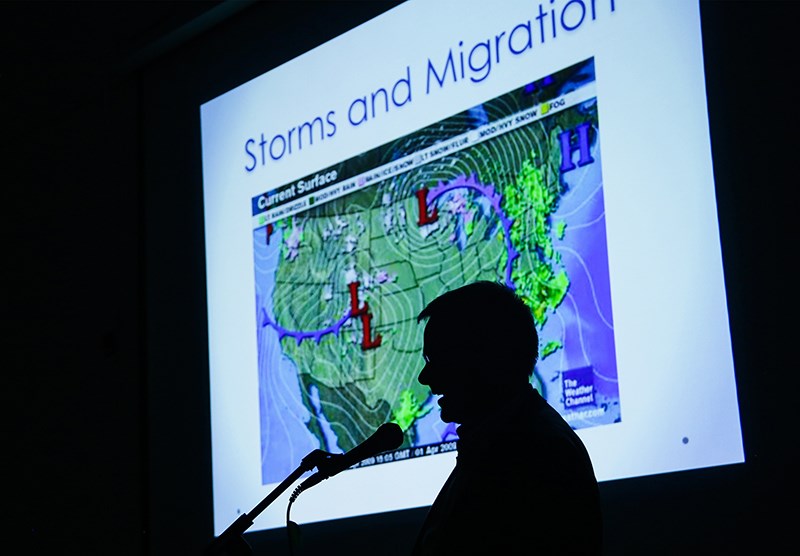Troy Shantz
Birds are remarkable weather forecasters, and some even make dramatic, last minute migrations to avoid thunderstorms and tornados.
So says Scott MacDougall-Shackleton of Western University’s advanced facility for avian research.
“We don’t think about things like barometric pressure or day-length controlling our lives in the same way,” he said, noting birds rely on low-frequency sound and other signals that humans are blissfully un-aware of.
“As people look at birds in their backyards, we have to remember that they see the world differently than we do. They hear the world differently than we do.”
MacDougall-Shackleton spoke to about 60 nature enthusiasts during a Lambton Wildlife meeting at the YMCA Careers and Learning Centre last month.
“Rodents, reptiles, plants - they’re all important. But birds are so visible, they’re so charismatic, that’s one of the ways a lot of people make a connection with nature,” he said.
“And so, if by looking at birds we get more people interested, I think that’s a really useful thing.”
Sarnia residents can do many things to support birds, including by growing native and sheltering plants, maintaining a bird feeder, and leaving berries and seed-heads behind.
They should also keep their cats indoors. Domestic cats are the number one killer of birds in North America, he said.
The event was one of Lambton Wildlife’s monthly gatherings, which feature outside experts and seasoned members presenting on a variety of topics.
“I think part of our mission is conservation, and part of our mission is education,” said president Mary Martin.
“So we’re trying to make people curious, give them opportunity to find out new things about the natural world, and deepen their understanding.”
At the next meeting, on Oct. 24, Jenny McCune will discuss her hunt for rare woodland plants in Southern Ontario, 7:30 p.m. at the 660 Oakdale Ave.
